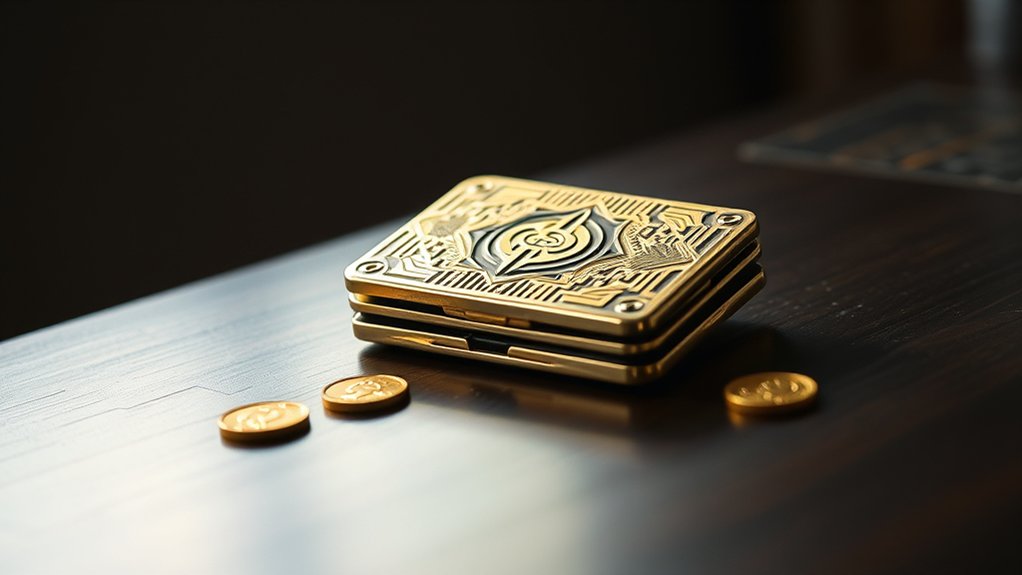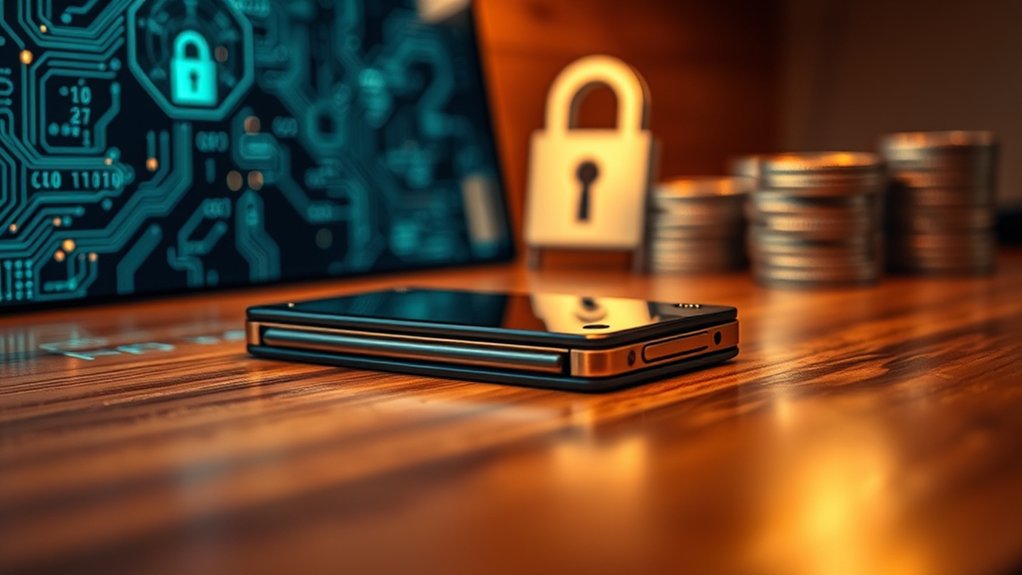Private keys are the keys to your digital kingdom, essential for managing cryptocurrency. They’re long strings of numbers, not just random gibberish. If someone swipes your private key, say goodbye to your funds—like losing your wallet in a bar, but worse. Public keys are just the tip of the iceberg; they’re like your account number. Want to keep your stash safe? Sure, but you’ll need to know how to protect these little gems. Keep going to discover more.

In the wild world of cryptocurrency, private keys are the unsung heroes—or villains, depending on your perspective. These secret codes are the lifeblood of managing and accessing digital assets. Without them, your precious crypto funds are just a mirage. They’re usually 256 bits long, expressed in a hexadecimal format that looks like a techie’s fever dream. Generated by complex algorithms within wallets, these keys are not just random strings of numbers. They’re vital for securing transactions on the blockchain.
Here’s the kicker: private keys create digital signatures that validate ownership and authenticate transactions. It’s like having a VIP pass to your own money. But don’t let that go to your head—if someone else gets hold of your private key, it’s game over. You’re locked out of your funds, and good luck explaining that to your friends.
Now, let’s talk about the relationship between public and private keys. Public keys are derived from private keys, making them mathematically linked. But here’s the good news: you can’t reverse-engineer a private key from a public key. So, while the public key acts like your bank account number, the private key is your PIN. Keep it secret. Keep it safe. Additionally, the public key acts as an address for receiving cryptocurrency, making it essential for managing your digital transactions. A single point of failure can occur if the private key is lost, leading to irreversible asset loss. To mitigate this risk, utilizing hardware wallets can provide an added layer of security by storing private keys offline.
Storing private keys is a whole other ball game. Hardware wallets? Great for offline security. Software wallets? Convenient, but you better have your security measures in check. Cold storage is the Fort Knox of key storage, keeping them completely offline.
And if you think you can wing it without regular backups, think again. Losing access to your private key is like losing your wallet in a crowded bar—good luck finding it again.
In the end, private keys are both your shield and your sword in the cryptocurrency battlefield. Secure them, respect them, and don’t let anyone else take a peek.
Frequently Asked Questions
How Do I Generate a Private Key for My Cryptocurrency Wallet?
Generating a private key? It’s not rocket science, folks. Just grab a random 256-bit number. Simple, right?
But wait! Use a secure, trustworthy source for that randomness. No sketchy apps, please. There are tools and libraries out there that make this easier.
Can I Recover My Private Key if Lost?
Losing a private key? That’s like misplacing your house key but with way worse consequences. Good luck recovering it! The chances are slim to none.
You can try wallet support or fancy recovery tools, but don’t hold your breath. Some people even resort to professionals, but they won’t guarantee anything.
What Happens if I Share My Private Key?
If someone shares their private key, it’s like handing over the keys to a vault filled with cash—no locks, no security.
Suddenly, anyone can waltz in and spend those funds. Whoops! Fraudulent transactions? You bet.
Privacy? Gone. Reputation? Might as well toss that out the window too. It’s a recipe for disaster.
Once that key’s out, the owner’s control vanishes faster than a magician’s rabbit. Game over, folks.
Are Private Keys Stored on Exchanges Safe?
Are private keys stored on exchanges safe? Spoiler alert: not really.
Exchanges get hacked. A lot. Storing keys there is like leaving your front door wide open. You don’t control the keys; they do. So, if that exchange goes belly up, guess what? Your crypto could vanish into thin air.
Sure, some exchanges have fancy security measures, but nothing is foolproof. Trusting them is a gamble. Just saying.
How Often Should I Change My Private Key?
Changing a private key? Well, it depends.
If it’s sitting in a hot wallet, maybe change it more often—think of it like changing your socks after a workout.
If it’s in cold storage, you can relax a bit. Just don’t forget: if it’s compromised, toss it out immediately.
Keep it secure, but don’t overthink it.





